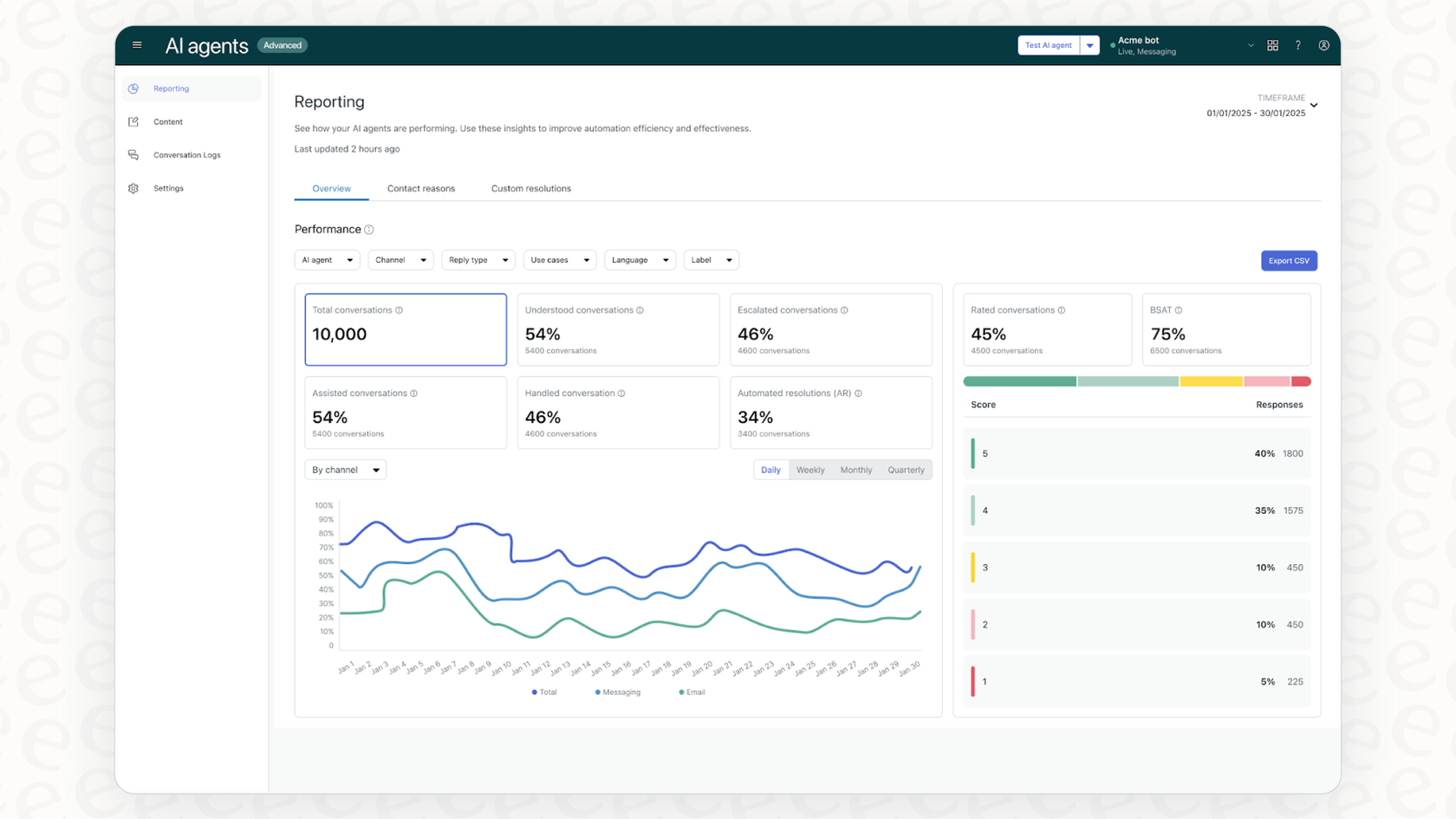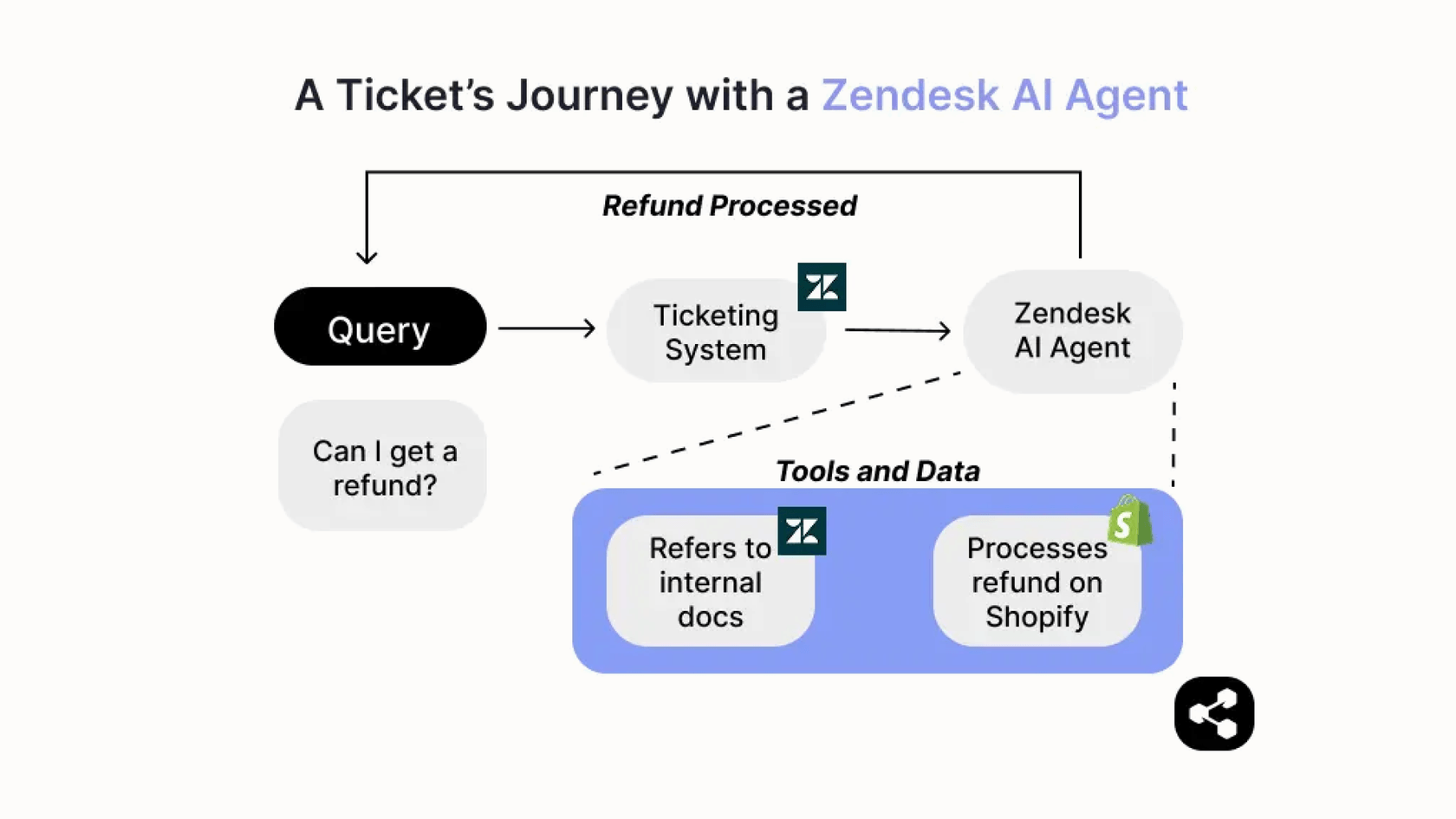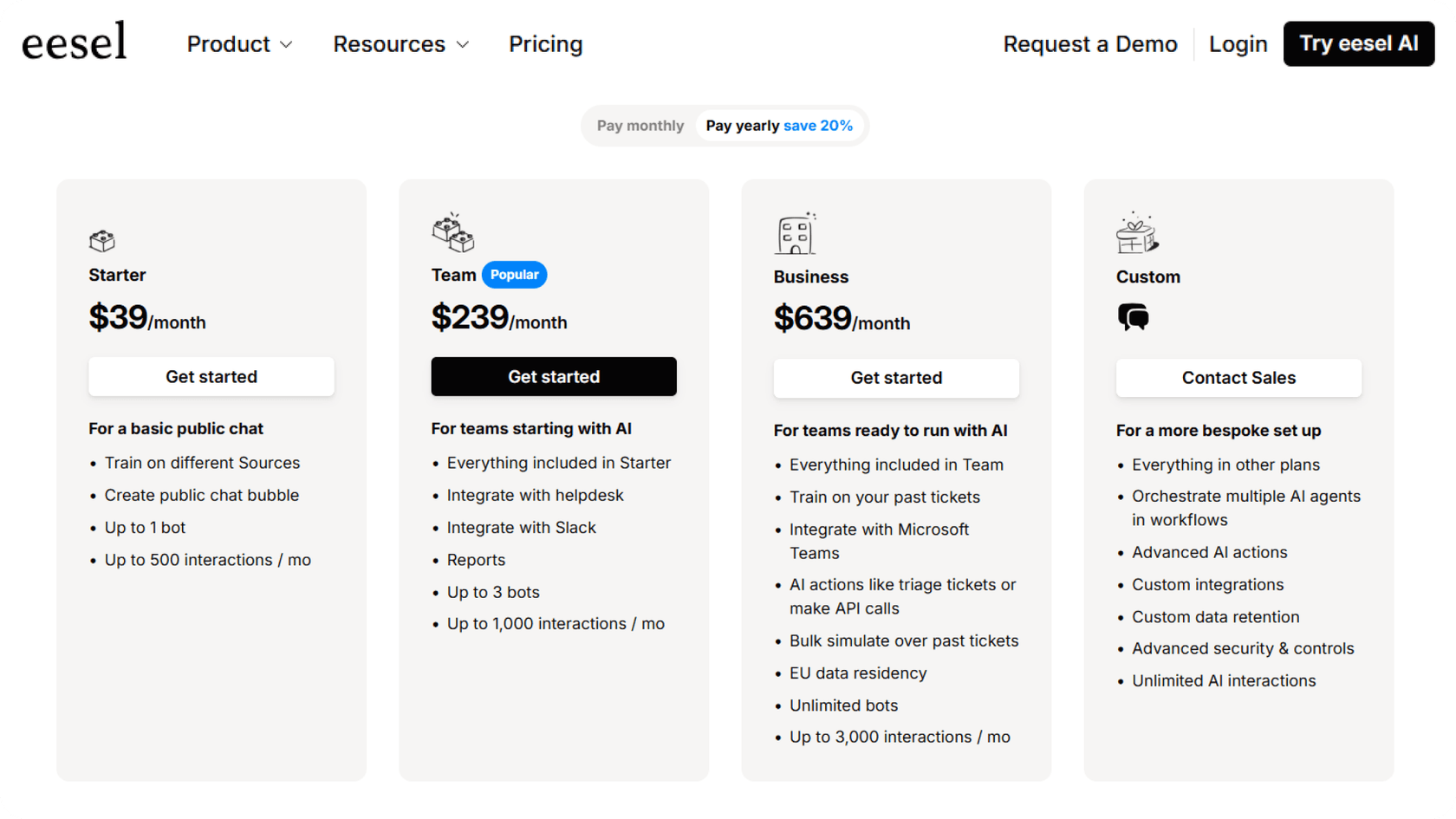Sierra vs Zendesk: A detailed comparison for 2026

Kenneth Pangan

Stanley Nicholas
Last edited January 12, 2026
Expert Verified

Trying to pick the right AI for your customer support team can feel like a huge task. You've got the giants like Zendesk, offering a platform that does just about everything, and then you have newer, more specialized tools like Sierra, which promises a finely-tuned conversational AI experience. Both want to help you clear out repetitive tickets and get customers answers faster, but they come at it from completely different directions.
This guide is a straightforward, no-fluff comparison of Sierra vs Zendesk. We'll dig into their core AI capabilities, how they are set up, and what their pricing looks like in 2026. The goal is to help you figure out which one might be the right choice for your team. We’ll also touch on a third option, one that boosts your current helpdesk instead of making you start from scratch.
What is Sierra AI?

Sierra is a fresh face in the conversational AI scene, having launched in 2023. It’s not a full-blown helpdesk; instead, it focuses on one thing: creating custom AI assistants that can handle customer chats and calls. The main selling point is building an AI that matches your brand's voice and knows your internal policies.
Think of Sierra as an AI layer designed to automate conversations. It aims to walk customers through trickier issues, like starting an exchange or changing a subscription, all through a chat-like interface. One thing to note is that details on its specific features and pricing are a bit hard to come by. You usually have to talk to their sales team and get a custom quote, which can be a roadblock if you're just trying to do your research and compare options quickly.
What is Zendesk?

If you've been in customer service for a while, you know Zendesk. Founded way back in 2007, it's a massive, industry-leading platform covering ticketing, live chat, knowledge bases, and reporting. In recent years, Zendesk has woven powerful AI features, called Zendesk Advanced AI, into its comprehensive software suite.
Zendesk’s AI is a robust add-on that's designed to work seamlessly inside the Zendesk world. It does things like route tickets to the right agent, suggest macros to speed up replies, and summarize long conversation threads. The idea here is to empower your agents, making them faster and more efficient while maintaining a high standard of service. This works great if your team values a unified environment where every tool is built to work in harmony.
A detailed comparison
Alright, let's get into the details. Here’s how these two platforms really compare when it comes to the things that support teams care about most: AI features, setup, and cost.
How their AI actually works
When you peek under the hood, you can see that Sierra and Zendesk think about AI in fundamentally different ways.
Sierra is all about being a "single-agent" conversational tool. Its main strength is in building that one AI assistant to talk to customers. However, it can sometimes struggle with workflows that have multiple steps, like when a customer wants to look up an order and then start a return. Getting these custom workflows (which Sierra calls AOPs) up and running often takes a good amount of engineering work.
Zendesk’s AI, on the other hand, acts as a powerful helper for your human agents. It's fantastic at summarizing long tickets and suggesting canned responses, which definitely helps your team move faster. It serves as a robust engine for efficiency within its industry-leading ticketing system. Many teams find its ability to deflect tickets is reliable for common questions, and it is designed to work alongside human agents to ensure high-quality resolutions for complex problems. The AI is also optimized to leverage the rich data you have stored inside the Zendesk platform.

This is a common consideration with a lot of AI tools. You're either working within the knowledge of one platform or you have to pull in developers to connect to anything else. A different way to go is a tool like eesel AI, which offers a complementary workflow engine. You can use its no-code editor to tell your AI exactly how to behave and what to do, from checking order info in real-time to updating ticket fields in your helpdesk. It gives you additional flexibility alongside your existing setup.
Getting up and running
How an AI tool plugs into the rest of your software is just as important as what it can do. This is another spot where Sierra and Zendesk offer different experiences.
If you’re already a Zendesk customer, implementation is remarkably simple. The AI features are baked right into the platform, so turning them on is easy. The benefit of this approach is that everything is contained within their powerful ecosystem, providing a consistent experience for agents and customers alike. To get the most benefit, your support knowledge lives centrally in Zendesk, which is ideal for many established teams.

Sierra is built to connect with other systems, but those connections can sometimes be complex. For some teams, integrating it with other tools may require engineering help. This can turn into a longer-term project if you have highly specific technical requirements.
Many teams look for options that are easy to start with. A platform like eesel AI, for example, is designed to be a simple, self-serve addition to your workflow. You can connect it to your helpdesk and pull in knowledge from various places, like Confluence, Google Docs, or Slack. It's a great option for teams that want to be up and running quickly while keeping their current tools in place.

What it's going to cost
Budget is always a big piece of the puzzle, and it's important to understand the investment before you commit.
Zendesk offers clear, structured pricing that allows teams to scale predictably. The Advanced AI add-on starts at $25 per agent, per month on top of your existing subscription, which ensures you have access to their world-class support and feature sets as you grow.
| Zendesk AI Add-On | Price (per agent/month) |
|---|---|
| Suite Team, Growth, Professional | +$25 |
| Suite Enterprise | +$50 (includes advanced features) |
Sierra's pricing isn't public. This is common for newer enterprise software, though it means you'll need to work closely with their sales team to understand the cost structure and any custom requirements for your business.
For teams looking for different models, eesel AI has transparent plans based on features and usage. This provides another option for managing your support costs as you expand your automation capabilities alongside your main helpdesk.

The third option: enhance your current helpdesk
The Sierra vs Zendesk conversation highlights an important choice: do you pick a specialized AI tool, or a comprehensive, all-in-one platform?
There’s also a way to blend these approaches. Instead of replacing your existing tools, you can add a smart AI layer that works with what you've already got. This is exactly what eesel AI does. It plugs right into your current setup, whether you use Zendesk, Freshdesk, Intercom, or another popular helpdesk.
This video discusses how AI is reshaping customer expectations, which is relevant to the Sierra vs Zendesk debate.
It can learn from your past tickets, help center articles, and internal docs in places like Confluence or Google Docs to assist in providing accurate answers. It's a great way to start small and scale your automation at your own pace.
Final thoughts
So, what's the final word on Sierra vs Zendesk in 2026?
-
Sierra is an option for teams who want a highly customized conversational AI and have the technical resources to manage custom integrations.
-
Zendesk remains the gold standard for teams who want a mature, reliable, and deeply integrated platform with AI features that are built to support professional human agents at scale.
In the end, the smartest approach to AI in customer support is about finding the balance that works for your team. A platform like eesel AI can complement your choice, letting you level up the tools you already know and love with powerful, custom automation.
Ready to see how a smarter AI can work with your current setup? Start your free eesel AI trial today.
Frequently asked questions
Sierra is a specialized conversational AI platform focused on creating custom AI assistants for chat and calls. Zendesk is a comprehensive, industry-leading helpdesk suite that includes powerful AI features designed to enhance the capabilities of its mature ecosystem.
Sierra aims to fully automate multi-step customer conversations with its custom AI assistants. Zendesk's AI is built to empower human agents by providing intelligent ticket summarization, smart routing, and response suggestions, ensuring a high-quality and reliable customer experience.
Zendesk AI offers a seamless experience if you're already a Zendesk customer, leveraging its integrated knowledge base for consistent answers. Sierra is designed to connect with other systems, though these integrations may sometimes require technical effort to set up.
Zendesk provides transparent, tiered add-on pricing starting at $25/month per agent, allowing teams to plan their budget with confidence. Sierra's pricing is not public and requires a custom quote, which can lead to more variable costs during the evaluation process.
For teams looking for a reliable and established platform, Zendesk's AI is easy to implement within their existing infrastructure. Sierra's implementation may require more dedicated technical resources for custom integrations, depending on your needs.
Sierra focuses on a single-agent model that may require engineering support for complex setups. Zendesk provides a unified and mature ecosystem where AI features are designed to work harmoniously within the platform to maintain high standards of service.
Share this post

Article by
Kenneth Pangan
Writer and marketer for over ten years, Kenneth Pangan splits his time between history, politics, and art with plenty of interruptions from his dogs demanding attention.





